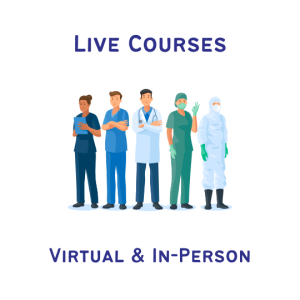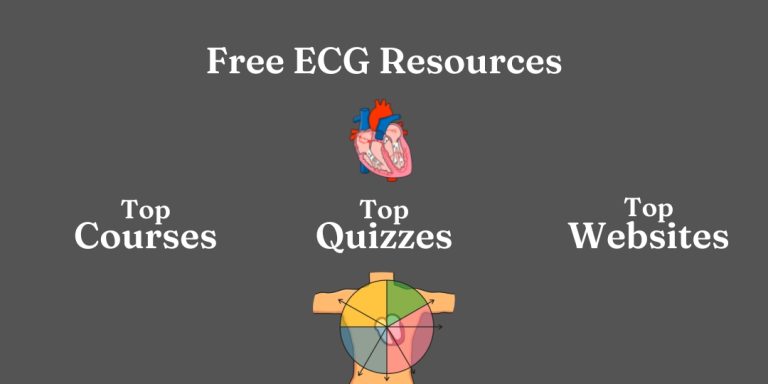
Published December 30, 2022 | Updated February 3, 2023
By Buddhini Dolapihilla
Buddhini is a medical doctor (MBBS) and a research assistant at Faculty of Medicine, University of Colombo, Sri Lanka.
Performing and interpreting ECGs are skills required for all UK junior doctors so that a rapid assessment can be made in acute medical scenarios. A quick and careful examination of the electrocardiogram in times of crisis can be a lifesaver, to identify heart rhythm abnormalities and make the most suitable intervention.
ECG interpretation is a core skill for foundation doctors, required for signing off foundation training competencies in the UK. Unfortunately, this is a skill that is both hard to master and even harder to teach. Many undergraduates are not taught the key underlying principles of electrocardiography. This leads to a dearth of junior doctors who can recognise common patterns but remain unconfident in their ECG interpretation skills.
However, there is no need to be forlorn. There are solutions to the problem: online and in-person ECG training courses.
Ideally, an ECG training course should offer you a high-level understanding of the theory and skills to identify abnormalities by understanding the waveforms and interpreting various cardiac rhythms.
In this article, we will go through everything you need to know about ECG courses. You can also check out our article on the best free online ECG resources.
The Basics of ECG Interpretation
An ECG, or ‘electrocardiogram’ in full (sometimes also abbreviated to EKG – a German short form of elektrokardiographie), is a non-invasive procedure used to diagnose patients who are suspected to be suffering from an abnormal heart rhythm or cardiac abnormality. It does this by measuring the electoral signal in their heart muscles.
The setup involves electrodes placed on the patient’s skin on all four limbs and the chest. In the UK, leads are usually connected via disposable electrode stickers, though elsewhere in the world “bulb” electrodes using suction cups and conductive gel are also used.

ECGs work on the principle that heart muscles are driven by electrical activity, activating myocardial cells to contract the heart and pump blood around the body. As a result of this, electrical activity is also transferred to the skin and can be recorded by electrodes.
This electrical activity includes the depolarisation and repolarisation of the heart muscles. On an electrocardiogram, each lead is assessing this depolarisation and repolarisation, telling the interpreter whether these waves are moving towards, or away from the lead.
A wave of depolarisation moving towards an ECG electrode will cause a positive inflection, and a wave moving away will cause a negative one. When the size, speed, rhythm, and pattern of these positive and negative inflections are interpreted using all 12 ECG leads, the reader can identify abnormalities within the heart’s conduction system.
Abnormal electrical activity may indicate a variety of pathophysiology. These include:
- Acute myocardial infarction
- Arrhythmias
- Coronary artery disease
- Electrolyte imbalance
- Heart block
- Pacemakers
- Previous heart attack
- Structural and electrical cardiac disease
Capturing these abnormalities comes in handy to help in the diagnosis and management of patients. Below are some of the signs and symptoms for which an electrocardiogram may be necessary:
- Chest pain
- Collapse
- Dizziness, light-headedness, or confusion
- Heart palpitations
- Rapid pulse
- Shortness of breath
- Weakness, fatigue, or a decline in the ability to exercise
About ECG Training Courses
While many junior doctors get their education on electrocardiograms from undergraduate training combined with spontaneous bedside teaching, this often leads to a gap in knowledge. New FY1 doctors hitting the wards for the first time find themselves nervous about what they don’t know, whereas core and higher speciality trainees might realise that they have an ECG interpretation blind spot, but don’t know how to fix it.
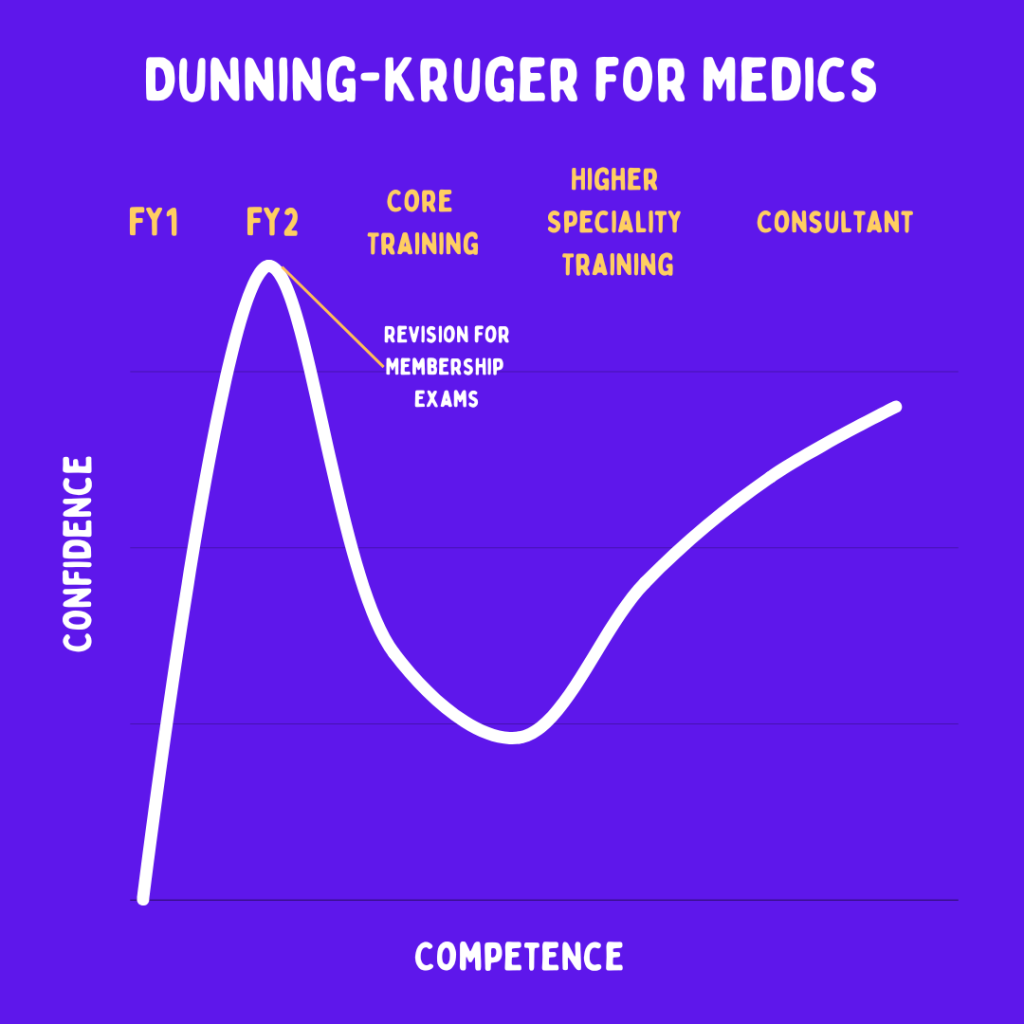
ECG interpretation and analysis courses provide the perfect opportunities for junior doctors to get a full overview of what’s expected of them when interpreting electrocardiograms, as well as giving you a structured approach for reporting ECGs.
Who Needs an ECG Training Course?
In most UK hospitals, nursing staff and ECG technicians will perform an electrocardiogram if requested. However, it is still necessary for junior doctors to have the skills to interpret and present a differential diagnosis. There are also plenty of occasions where it’s useful for junior doctors to know how to perform an ECG themselves.
Various healthcare professionals can enrol in an ECG training course, including:
- Staff nurses, particularly those working in cardiology, acute medicine, and intensive care
- Advanced nurse practitioners working in any speciality
- Cardiac physiologists
- Paramedics
- Physician associates
Several medical specialities may require the use of these skills. These include:
Cardiology
Cardiologists specialise in the diagnosis and treatment of diseases of the heart and blood vessels. They frequently use ECG as a diagnostic tool to assess the function of the heart and detect abnormalities such as arrhythmias, myocardial infarction, and other cardiac conditions. Cardiologists are experts in ECG interpretation, and electrophysiologists (a subspeciality of cardiology) have a particularly in-depth knowledge of ECG morphology.
Emergency medicine
Emergency medicine physicians often use ECG in the emergency department to quickly assess the condition of patients presenting with chest pain, shortness of breath, and other symptoms that may be related to cardiac issues.
General Practice
General practitioners may also use ECG as part of their routine evaluation of patients, particularly for those who are at risk for cardiovascular disease or have symptoms suggestive of cardiac problems. While some practices use an external service to interpret their ECGs, many GPs still retain the ability to analyse electrocardiographs.
Medicine
While those in medical subspecialties may not have the same level of expertise as cardiologists, Internal Medicine Trainees (from CT1 to ST8) are expected to provide a detailed interpretation of ECGs while clerking, on ward cover, or in clinic. This helps the assessing doctor to diagnose cardiac conditions, but also to rule out cardiac causes of symptoms such as collapse or shortness of breath.
Anaesthetics
Anaesthetists use ECG monitoring during surgery to assess the function of the heart and detect any changes in cardiac activity that may be related to the anaesthetic or the surgery itself. Anaesthetists also use ECG routinely as part of pre-op planning and are expected to identify pathology which might impact surgical and anaesthetic risk.
Sports medicine
Sports medicine doctors may use ECG to assess the cardiovascular fitness of athletes and to monitor for any changes in cardiac function that may be related to training or competition. With many recent high-profile cases of hypertrophic cardiomyopathy and sudden cardiac death, sports medicine physicians should be able to identify signs of structural heart conditions.
Psychiatry
You’d be surprised at how often psychiatrists need to cast their gaze over an ECG. Many antipsychotics and other psychotropic medications can cause ECG abnormalities – prolonged QT interval in particular. Psychiatrists do not need a detailed understanding of ECGs, but should be able to identify causes for concern.
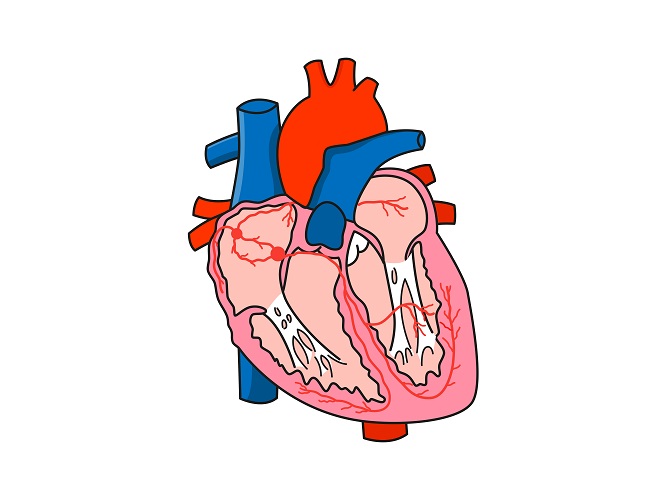
Most importantly, however, junior doctors need these skills because they have the ultimate responsibility for interpreting a patient’s ECG when assessing patients on the ward.
Though many healthcare workers have learned basic interpretation skills, nurses and allied health professionals have often learned by experience and may have specialised in departments which rarely require them to fulfil this role. This is different for junior doctors, who handle every kind of patient and are sometimes the most senior person involved in emergency patient care.
Why Attend an ECG course?
No doubt, ECG knowledge and skills are important to junior doctors, but is it necessary to go on an ECG course?
For many junior doctors, the answer is yes, for two reasons:
- ECG interpretation is integral to providing day-to-day healthcare to the public across both primary and secondary care.
- Despite interpretation skills being crucial, junior doctors are often taught to read electrocardiograms without much practical experience, with infrequent formal education and scattered impromptu bedside teaching forming much of their education.
It is for the second reason that many junior doctors find it hard to integrate the knowledge they gained in medical school into practical skills. Many junior doctors report feeling unconfident in being able to identify subtle or lesser-seen ECG abnormalities. Rather than scamper around to pick bits of knowledge from all over, an ECG course provides a holistic approach to the concept of ECG and its application.
In summary:
- Attending an ECG interpretation course will improve your skills, knowledge, and confidence when interpreting ECGs to rule-in or out cardiac disease.
- It is important to interpret ECGs in a variety of situations. By attending an ECG course you can intervene and make quick decisions when assessing a medical emergency.
Online Versus In-person ECG Courses
You may be wondering whether to book an in-person or online course. This depends on how you learn best!
For some, the personal connection, ability to ask questions, and chance to learn and network with peers means an in-person ECG course would work better for their learning needs. To others, convenience always trumps personal appeal.
There are two formats available for online courses:
- Virtual Events – live and interactive courses which can be attended from the comfort of your home.
- On-demand courses – Instantly accessible online courses which can be completed at a convenient time for you.
While both options offer convenience, it depends on your situation and preferences as to which would suit you better. Here are a few reasons why you might prefer an online format:
Flexibility
An online ECG interpretation course offers you the freedom to learn by your schedule. This gives you time for your personal and career matters without causing additional stress and time pressures to your already busy life.
Budget
In-person courses are generally more expensive compared to online options. These costs come in form of travel and sometimes accommodation expenses, as well a higher ticket price due to increased overheads for the course provider. On the other hand, online ECG courses offer you the possibility of learning from the comfort of your home.
Feasibility
In-person courses may require your full attention, and at times demand exhausting and inconvenient travel. This can lead to career disruption and often drains your mental energy.
Online courses offer the option of learning on your terms – wherever and whenever suits your schedule. This causes minimal disruption to your personal and professional life.
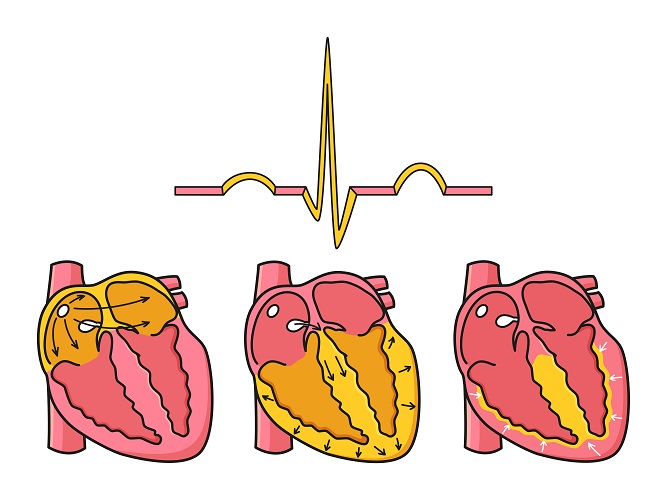
What to Consider When Choosing a Course?
There are several things to consider when choosing an ECG course:
Accreditation
Make sure the course is accredited by a reputable organisation, such as a Royal College. This not only ensures that the course curriculum is of high quality and meets certain standards, but also means you can record CPD hours for any revalidation requirements (particularly useful when not in training).
Course Content
Consider the course content and ensure that it covers the topics that you are interested in at a level that is relevant to your prior experience. Many courses are aimed at healthcare professionals who may not have received in-depth education on ECG interpretation during training – look for a course which includes junior doctors in their stated target audience. Courses listed on MedCourse are exclusively aimed at junior doctors.
Instructor Qualifications
Look for an instructor who is qualified and has experience in the field. This will ensure that you are learning from someone who knows what they’re talking about. This can include nationally recognised experts, but useful and relevant courses can also be delivered by near-peer seniors, who have a great understanding of your current level of knowledge.
Cost
Compare the cost of different courses – on MedCourse you can filter by price to find one that fits your budget. You may be able to claim back this money from your study budget but check first whether your deanery accepts claims for online courses.
Duration
Consider the length of the course and whether it fits your schedule. Some courses may be self-paced, while others may have set deadlines. A multi-day course might interest you if you have any aspirations in Cardiology, whereas an afternoon course might be more suitable for foundation & doctors working outside of medicine.
Testimonials
Read reviews and testimonials from people who have taken the course to get an idea of the quality of the course and the instructor.
Customer support
Read the provider’s refund policy before you make the purchase, particularly if you are attending a virtual event and may have to cancel due to rota changes. Look to see whether the course provider offers technical support in case you have any issues with the course material or platform.

How to Find an ECG Training Course
ECG Interpretation skills are essential to all UK junior doctors. While there are plenty of free resources available on the internet, junior doctors rarely have the opportunity to dig around the internet in search of a comprehensive course which fits their educational needs and busy schedule.
At MedCourse, we help junior doctors find courses that are useful, relevant, and interesting. No need to endlessly scroll google to filter through irrelevant information – here you can browse and filter a selection of virtual, face-to-face, and on-demand courses relevant to junior doctors practising in the UK.
If you’re interested in instant-access online ECG courses, check out our on-demand course section. For in-person course events and live virtual courses aimed specifically at junior doctors, check out our course calendar to filter ECG courses by grade, speciality, location and more.
Alternatively, the next best option is to search for something like “ECG course for doctors” on Google. Be careful while doing this, however, as many online courses are aimed at healthcare professionals as a whole, and might not be entirely relevant to your level of experience.
If you’re on a budget and want to find something that saves you some money, check out our article on the best free online ECG resources!


